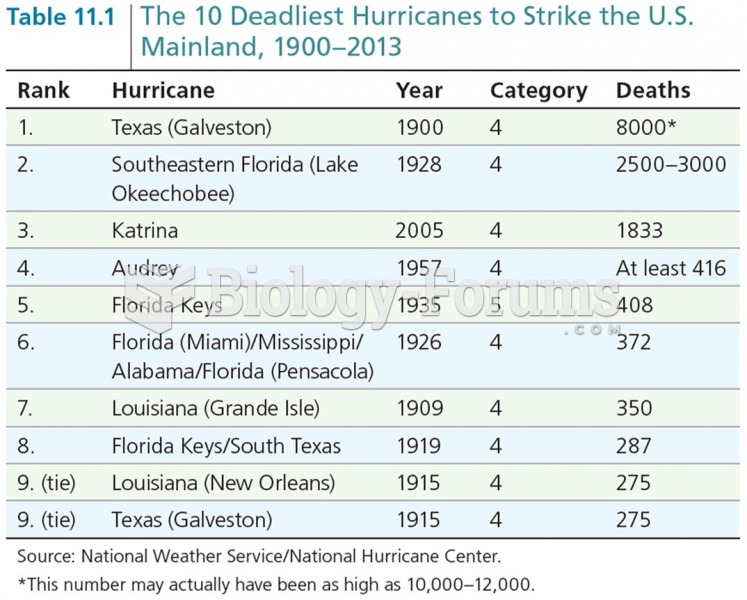|
|
|
Prostaglandins were first isolated from human semen in Sweden in the 1930s. They were so named because the researcher thought that they came from the prostate gland. In fact, prostaglandins exist and are synthesized in almost every cell of the body.
Between 1999 and 2012, American adults with high total cholesterol decreased from 18.3% to 12.9%
Medication errors are more common among seriously ill patients than with those with minor conditions.
All patients with hyperparathyroidism will develop osteoporosis. The parathyroid glands maintain blood calcium within the normal range. All patients with this disease will continue to lose calcium from their bones every day, and there is no way to prevent the development of osteoporosis as a result.
There are 60,000 miles of blood vessels in every adult human.







